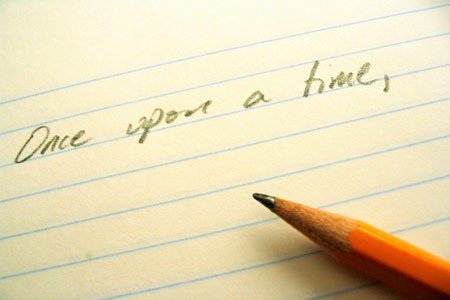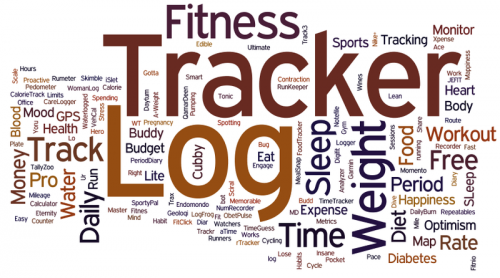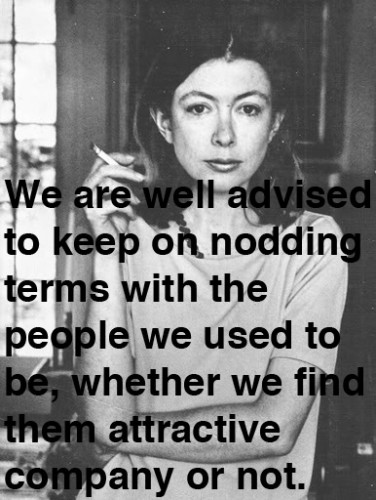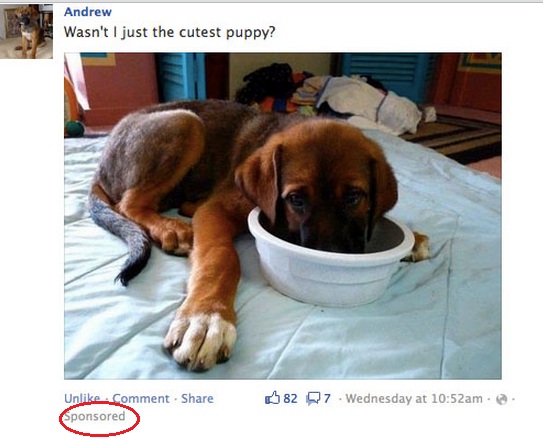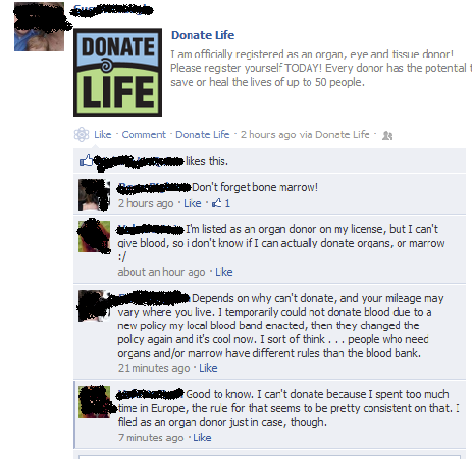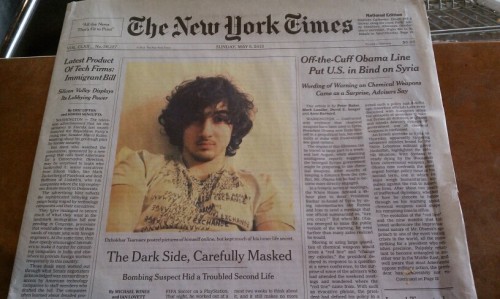
I’m fascinated by the cover of yesterday’s Sunday New York Times. Fixated on the image of Boston Marathon suspected bomber Dzhokhar Tsarnaev, I was momentarily unable to notice the words surrounding it. I was a little stunned, then angry, then captivated. The image, not just the Instagrammed selfie of Dzhokhar, but this photo within the culturally significant New York Times front page, is endlessly sociologically fascinating.
For some, this cover provokes anger more...

